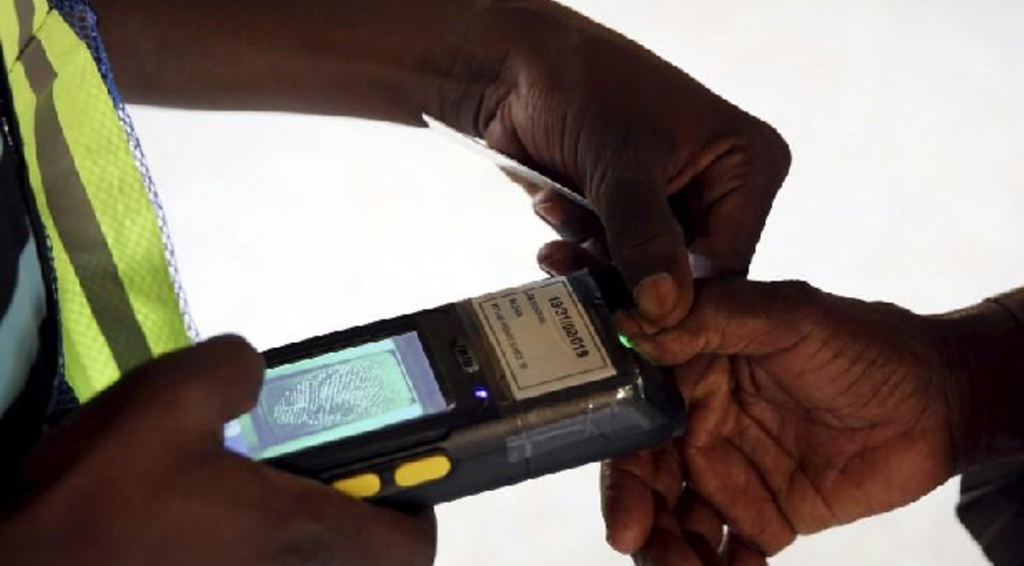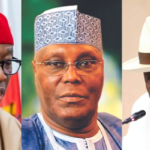
We were excited, therefore, that the Joe Biden administration chose to host the President, Major General Muhammadu Buhari (retd.), and other leaders from across the world as part of the Summit for Democracy (S4D) last December. Buhari made verbal commitments to democracy in Nigeria at that event but has yet to submit written commitments to back up his speech. The S4D is matched with a Year of Action (YoA) and Nigerian civil society has a critical role to play—to hold the Nigerian government to account for its promises and also to push for these commitments to be clearer, actionable and achievable.
So, with this in mind, let’s look at the pledges that President Buhari made in his S4D speech and assess how feasible they are to implement.
First, he said, “I am proud to state that Nigeria has had over two decades of uninterrupted democratic governance and has unequivocally remained committed to upholding the core values and principles of democracy.” Is this true? Not entirely. While Nigeria has elements of democratic decision-making, there are restrictions to freedom of speech (the Twitter ban being just one example); efforts to curtail the media (such as the efforts by the National Broadcasting Commission to control television and radio programming) and serious issues within the justice system (the high profile issues with the Lekki tollgate violence again being just one example).
Second, he claimed that “since assuming office in 2015, we have been able to introduce mechanisms to ensure free, fair and credible elections” and that “the government is committed to putting in place and strengthening all necessary mechanisms to ensure that Nigeria will not record another peaceful transfer of power to an elected democratic government.” Is this true? To some extent. The government has just passed the Electoral Amendment Bill, which gives financial independence to the Independent National Electoral Commission, provides a central electronic voters database, supports/assists voters with physical disabilities, special needs and vulnerable persons at the polling unit, and legitimises e-voting/transmission of election results. More can be done in terms of electoral integrity, including through building fairness into public service by ensuring that public service officials including political office holders seeking elective positions should resign six months before elections and by ensuring that public servants are not campaigning or using public funds for such purposes while in office. By virtue of Section 84(12) of the Electoral Act, 2022, anyone holding a political office must vacate the position before he or she can be eligible to participate in a primary election, convention or congress of political parties either as a candidate or as a delegate. This provision only covers political appointees and does not extend to elected political office holders or public officers employed in the public service. It is also essential that the independence of the INEC is respected by all branches of government through the review of the final decision of the returning officer with regards to overvoting and review of results declared by a returning officer under duress or where such a declaration was made contrary to the provision of the law, regulations and guidelines and manual for the election.
Third, Buhari said that since assuming office in 2015, the government has strengthened its key anti-corruption agencies in collaboration with international partners and has undertaken “several anti-corruption measures and initiatives.” How accurate is this statement? It’s hard to tell as there is no measure to understand how these agencies have been strengthened. While finances have been centralised, conviction rates for corruption have increased and larger numbers of stolen assets have been forfeited. But the government is nevertheless working from a very low base. There continue to be significant shortcomings in our anti-corruption frameworks, including the appointment of individuals of questionable integrity to key positions, the tendency of the government to shield political allies from investigation and prosecution, a disinterest in how the ruling party funds election campaigns, a failure to address key petroleum sector reforms and corruption-prone economic and fiscal policies.
The Niger Delta Development Commission forensic report has been presented to the president and it indicates that nearly 14,000 projects in the Niger Delta have been compromised by corruption. The government has cancelled all unexpected contracts awarded by the NDDC before December 31, 2019, and affected contractors have been mobilised to refund all the monies so far paid to them. However, asset recovery is difficult to measure, given the lack of transparency and inaccessibility of the database of recovered assets. Also, given the inefficient management of these processes by anti-corruption agencies in previous years, there is little hope for citizens and CSOs to push for greater transparency by engaging vehicles such as the Freedom of Information Act, and the yet-to-be-established Proceeds of Crime Management Directorate through the Proceeds of Crime (Recovery and Management) Act 2022. . Overall, Nigerians remain concerned about the independence of anti-corruption agencies, discouraged by their ability to fight graft and demotivated by a political system that rewards wrong-doing at every level.
Fourth, the president suggested that “Nigeria will continue to actively support the democratisation processes in our region of West Africa and the African continent at large.” Let’s look at the numbers on this one, as just one way of measuring whether this is happening. In terms of provision of financial and capacity support to regional organisations, for example, Nigeria’s support has been dwindling. The most recently available figures show that Nigeria has more than 30% of its payments outstanding to ECOWAS. In addition, according to The West Africa Autocratisation Report published by Open Society Initiative for West Africa, Nigeria has seen significant declines in its scores on the electoral, liberal and deliberative components of democracy since 2015. Nigeria does, however, score well on media freedoms and the report noted no significant barriers to freedom of discussion and organisation of political parties.
Fifth, the president claimed that “Nigeria continues to face the challenge of insecurity which poses a threat to our democracy. We, therefore, call on global partners to support our efforts in tackling insurgency and terrorism.” It is true that Nigeria faces insecurity but the actions of the government have only exacerbated this situation (and, in fact, undermined democracy). Nigeria’s overall rule of law declined in the 2021 World Justice Project Rule of Law Index, with the country ranking 121 out of 139. The government has repeatedly demonstrated that they rule through law, rather than by law and trampled on the constitutional rights of those that it feels might demonstrate a threat to their power. In this claim, Buhari is confusing cause and effect—it is our lack of democracy that is causing insecurity, not the other way around—and until Nigeria reaffirms a social contract through which all Nigerians feel part of a fair, inclusive state, there is very little that international support can do to solve our issues of insecurity.
Finally, you might also ask: Do the commitments that Buhari made as part of the S4D actually reflect what civil society and our citizens want? To some extent. The commitments he made are not specific or actionable as laid out, and as our recent survey indicates, they do not touch on many of the issues that civil society currently prioritises, including inclusive governance, respect for the rule of law and closing civic space. While democracy and corruption are critical concerns for the Nigerian population, they affect different members of that population in different ways, and Buhari has provided no indication that his government is willing to support, in particular, those that are most disenfranchised, excluded or removed from power in Nigeria. In fact, the systems that exist are only exacerbating these divisions.
So Nigeria has again committed to democratic promises that are based on some intentional misunderstandings of context, fabricated presumptions and less-than-inclusive processes. We must do better and it remains up to us as citizens to indicate the standards that we want to be met.
Odeh is Country Director, Accountability Lab Nigeria





